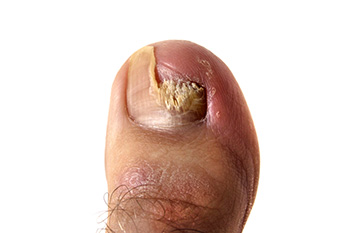Garner (919) 661-4150
May 2025
Treating Toenail Fungus With Creams and Devices

Fungal infections of the toenails can cause thickening, discoloration, and crumbling of the nail. While oral medications are sometimes used, many cases can be managed with topical or device-based treatments. Antifungal creams, gels, or medicated nail lacquers are applied directly to the nail and surrounding skin. These treatments work best when used consistently and in the early stages of infection. In addition to topical solutions, device-based options like laser therapy are becoming more common. Lasers target the fungus beneath the nail without damaging surrounding tissue, and are typically done in a podiatrist’s office. Another approach involves mechanical thinning or filing of the nail to help treatments penetrate deeper. Results can take several months, as toenails grow slowly. If you have a stubborn or worsening toenail infection, it is suggested that you see a podiatrist for a diagnosis and treatment that is right for you.
For more information about treatment, contact Chukwuma Ukata, DPM of Advanced Carolina Foot and Ankle Center. Our doctor can provide the care you need to keep you pain-free and on your feet.
Toenail Fungus Treatment
Toenail fungus is a condition that affects many people and can be especially hard to get rid of. Fortunately, there are several methods to go about treating and avoiding it.
Antifungals & Deterrence
Oral antifungal medicine has been shown to be effective in many cases. It is important to consult with a podiatrist to determine the proper regiment for you, or potentially explore other options.
Applying foot powder on the feet and shoes helps keep the feet free of moisture and sweat.
Sandals or open toed shoes – Wearing these will allow air movement and help keep feet dry. They also expose your feet to light, which fungus cannot tolerate. Socks with moisture wicking material also help as well.
If you have any questions please feel free to contact our office located in Garner, NC . We offer the newest diagnostic tools and technology to treat your foot and ankle needs.






